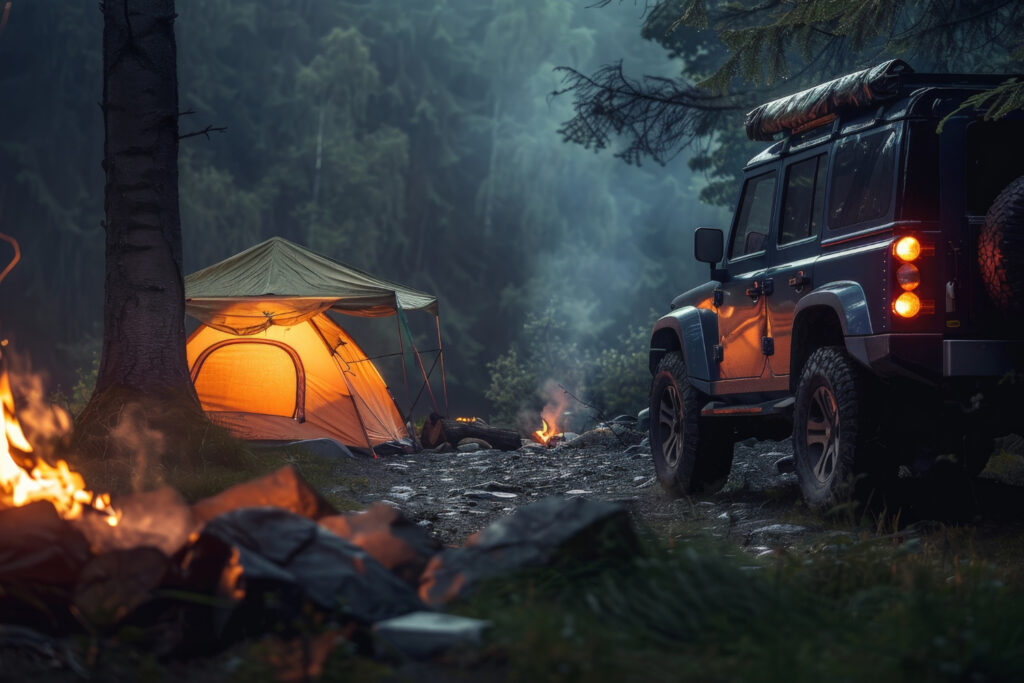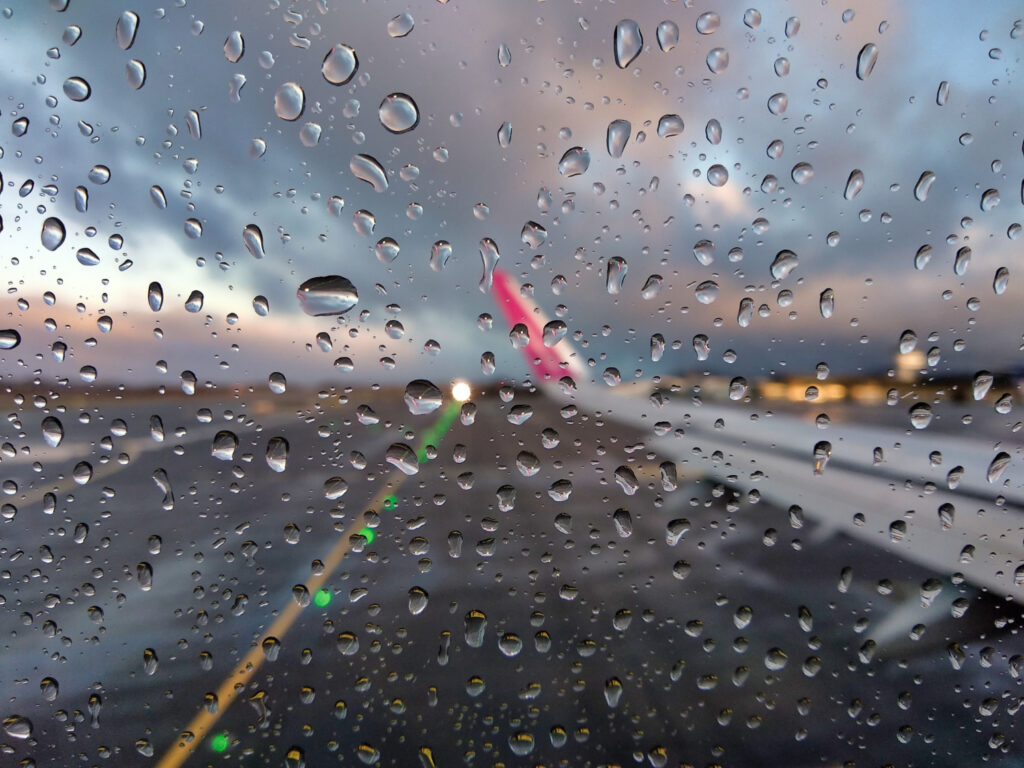Night camping in the jungle can be an exhilarating adventure, offering a unique connection with nature and an escape from everyday life. However, it also requires careful preparation and awareness to ensure a safe and enjoyable experience. This guide covers 20 essential tips to remember for night camping in the jungle, providing you with the knowledge and confidence needed to embark on your next adventure.
1. Planning and Preparation
Research the Area
Before embarking on your night camping trip, research the jungle area you plan to visit. Familiarize yourself with the local wildlife, weather conditions, and terrain. Understanding the environment will help you prepare for potential challenges and ensure a safer experience.
Check Permits and Regulations
Ensure you have the necessary permits and understand the regulations for camping in the jungle. Some areas may have restrictions to protect the environment and wildlife. Adhering to these rules is crucial for preserving the natural habitat and ensuring your safety.
2. Packing Essentials
Shelter and Sleeping Gear
A reliable tent and sleeping gear are essential for a comfortable night camping in the jungle. Choose a tent that is durable, weather-resistant, and easy to set up. A quality sleeping bag and sleeping pad will provide insulation and comfort, helping you get a good night’s rest.
Clothing and Footwear
Pack appropriate clothing for the jungle environment. Lightweight, moisture-wicking, and quick-drying fabrics are ideal. Include long-sleeved shirts and pants to protect against insects and vegetation. Sturdy, waterproof hiking boots are essential for navigating the terrain safely.
3. Safety Equipment
First Aid Kit
A well-stocked first aid kit is crucial for any night camping trip. Include bandages, antiseptic wipes, pain relievers, insect repellent, and any personal medications. Knowing basic first aid procedures can also be invaluable in case of an emergency.
Navigation Tools
Bring a reliable map, compass, and GPS device to help you navigate the jungle. Even if you are familiar with the area, these tools are essential for preventing you from getting lost. Ensure your devices are fully charged and pack extra batteries.
4. Food and Water
Non-Perishable Food
Pack non-perishable food items that are easy to prepare and require minimal cooking. Canned goods, dehydrated meals, nuts, and energy bars are excellent options. Ensure you have enough food to sustain you for the duration of your trip.
Water Purification
Access to clean drinking water is crucial. Pack a portable water filter or purification tablets to ensure you have safe drinking water. Knowing the location of nearby water sources can also help you plan your water needs effectively.
5. Fire Safety
Fire-Making Tools
Bring reliable fire-making tools such as waterproof matches, a lighter, and fire starters. Knowing how to start a fire in various weather conditions is essential for cooking, warmth, and signaling in an emergency.
Fire Safety Practices
Practice safe fire management by choosing a safe location for your fire, keeping it small, and never leaving it unattended. Ensure you fully extinguish the fire before leaving the area or going to sleep to prevent accidental wildfires.
6. Wildlife Awareness
Understanding Local Wildlife
Research the local wildlife and understand their behavior. Knowing which animals are nocturnal and how to avoid attracting them to your campsite is crucial. Store food securely and keep your campsite clean to minimize encounters with wildlife.
Animal Safety Precautions
Take precautions to protect yourself from potential wildlife encounters. Carry bear spray or other deterrents, and know how to use them effectively. Make noise while hiking to alert animals to your presence and reduce the chance of surprising them.
7. Insect Protection
Using Insect Repellent
Insects can be a significant nuisance in the jungle. Use insect repellent containing DEET or other effective ingredients to protect yourself from bites. Apply repellent to exposed skin and clothing for maximum protection.
Mosquito Nets and Protective Clothing
Pack a mosquito net to use over your sleeping area. Wear protective clothing, such as long-sleeved shirts and pants, to minimize exposure to insects. These measures will help you avoid discomfort and potential diseases transmitted by insects.
8. Staying Connected
Communication Devices
Bring reliable communication devices, such as a fully charged cell phone, satellite phone, or two-way radio. These devices are crucial for staying in touch with the outside world and can be lifesaving in an emergency.
Informing Others of Your Plans
Inform someone you trust about your camping plans, including your expected route and return time. Regular check-ins can provide peace of mind and ensure someone knows your whereabouts in case of an emergency.
9. Environmental Responsibility
Leave No Trace Principles
Follow the Leave No Trace principles to minimize your impact on the environment. Pack out all trash, avoid damaging vegetation, and respect wildlife. These practices help preserve the natural beauty of the jungle for future campers.
Sustainable Camping Practices
Adopt sustainable camping practices such as using biodegradable soap, minimizing campfire impact, and conserving water. Being mindful of your environmental footprint ensures the jungle remains a pristine and enjoyable place for everyone.
10. Weather Preparedness
Checking Weather Forecasts
Monitor weather forecasts leading up to your trip and be prepared for changing conditions. Knowing the weather patterns can help you pack appropriately and plan your activities safely.
Packing for All Conditions
Pack clothing and gear suitable for various weather conditions. Include waterproof jackets, extra layers for warmth, and sun protection such as hats and sunscreen. Being prepared for all weather scenarios ensures your comfort and safety.
11. Personal Comfort
Sleeping Comfortably
Ensure a comfortable sleeping setup by choosing a suitable tent location, using a sleeping pad, and bringing a pillow or improvised headrest. Quality sleep is crucial for enjoying your night camping experience.
Personal Hygiene
Maintain personal hygiene by bringing items such as biodegradable soap, a toothbrush, toothpaste, and hand sanitizer. Staying clean and fresh contributes to your overall well-being and comfort during your trip.
12. Nighttime Navigation
Using Headlamps and Flashlights
A reliable headlamp or flashlight is essential for navigating the jungle at night. Choose a device with a long battery life and pack extra batteries. Hands-free headlamps are particularly useful for setting up camp and moving around in the dark.
Marking Your Campsite
Mark your campsite with reflective tape or other visible markers to help you find it easily in the dark. Familiarize yourself with the surroundings during daylight to make nighttime navigation easier.
13. Camp Setup
Choosing a Campsite
Select a campsite that is flat, dry, and away from potential hazards such as falling branches or flooding areas. Setting up camp in a safe and suitable location ensures a more comfortable and secure experience.
Setting Up Efficiently
Practice setting up your tent and organizing your gear before your trip. An efficient camp setup saves time and reduces stress, allowing you to relax and enjoy your night camping adventure.
14. Entertainment and Activities
Stargazing
The jungle offers a unique opportunity for stargazing due to its remote location and minimal light pollution. Bring a star map or stargazing app to identify constellations and enjoy the beauty of the night sky.
Campfire Stories and Games
Engage in campfire stories, games, and other activities to make your night camping experience memorable. These activities foster a sense of camaraderie and enjoyment, enhancing your overall adventure.
15. Mental Preparedness
Staying Calm and Confident
Maintaining a calm and confident mindset is crucial for dealing with unexpected situations. Practice relaxation techniques such as deep breathing and mindfulness to stay composed and focused during your trip.
Embracing the Adventure
Embrace the adventure and challenges of night camping in the jungle. A positive attitude and a sense of adventure enhance your experience, making it a memorable and rewarding journey.
16. Navigating Emergencies
Emergency Procedures
Familiarize yourself with emergency procedures and know how to respond to common issues such as injuries, animal encounters, and getting lost. Being prepared for emergencies ensures your safety and the safety of your group.
Creating an Emergency Plan
Create an emergency plan that includes contact information for local authorities, the nearest medical facilities, and emergency evacuation routes. Sharing this plan with your group ensures everyone knows how to respond in an emergency.
17. Keeping Valuables Safe
Securing Personal Belongings
Keep your personal belongings secure by using lockable bags or containers. Store valuables such as wallets, phones, and keys in a safe and easily accessible location within your tent.
Protecting Against Theft
While theft is less common in remote jungle areas, it’s still essential to take precautions. Keep your campsite organized, and do not leave valuables unattended. Staying vigilant helps protect your belongings.
18. Health and Well-being
Staying Hydrated
Staying hydrated is crucial for maintaining your health and energy levels. Drink plenty of water throughout your trip and avoid consuming excessive caffeine or alcohol, which can lead to dehydration.
Managing Stress
Camping in the jungle can be stressful at times. Practice stress management techniques such as deep breathing, meditation, and physical activity to maintain your mental well-being.
19. Preparing for the Unexpected
Flexibility and Adaptability
Be prepared for the unexpected by staying flexible and adaptable. Weather changes, wildlife encounters, and other unforeseen events can occur. Being open to adjusting your plans ensures a smoother and more enjoyable experience.
Contingency Plans
Create contingency plans for various scenarios, such as bad weather or injuries. Having backup plans helps you stay prepared and reduces anxiety in case things don’t go as planned.
20. Reflecting on Your Experience
Journaling Your Adventure
Journaling your night camping experience allows you to capture memories and reflect on your journey. Documenting your thoughts, feelings, and observations helps you appreciate the adventure and learn from the experience.
Sharing Your Story
Share your night camping story with friends, family, or through social media. Inspiring others to explore and appreciate the beauty of the jungle fosters a sense of community and encourages responsible outdoor activities.
Conclusion
Night camping in the jungle is a unique and rewarding experience that offers a deep connection with nature. By following these 20 essential tips, you can ensure a safe, enjoyable, and memorable adventure. Remember, preparation and awareness are key to making the most of your night camping trip. Embrace the challenges and beauty of the jungle, and create lasting memories that will inspire future adventures.
FAQs
1. What are the essential items to pack for night camping in the jungle?
Essential items include a reliable tent, sleeping gear, appropriate clothing, first aid kit, navigation tools, non-perishable food, water purification tools, fire-making tools, insect repellent, communication devices, and personal hygiene items.
2. How can I ensure my safety while night camping in the jungle?
Ensure your safety by researching the area, packing essential safety equipment, following wildlife safety precautions, practicing fire safety, staying hydrated, and creating an emergency plan.
3. What should I do if I encounter wildlife during my camping trip?
Remain calm and avoid sudden movements. Give the animal space and avoid attracting it with food or strong scents. Use deterrents like bear spray if necessary, and make noise to alert animals of your presence.
4. How do I choose a suitable campsite in the jungle?
Choose a flat, dry location away from potential hazards like falling branches or flooding areas. Ensure the site is safe and suitable for setting up your tent and other camping gear.
5. What are the best practices for managing waste while camping in the jungle?
Follow Leave No Trace principles by packing out all trash, avoiding damaging vegetation, and respecting wildlife. Use biodegradable soap and minimize campfire impact to reduce your environmental footprint.
6. How can I stay hydrated during my night camping trip?
Bring a portable water filter or purification tablets to ensure access to clean drinking water. Know the location of nearby water sources and drink plenty of water throughout your trip.
7. What should I do if I get lost in the jungle at night?
Stay calm and use your navigation tools to determine your location. Backtrack to a familiar point if possible and use your communication devices to contact someone for help.
8. How can I protect myself from insects while camping in the jungle?
Use insect repellent containing DEET or other effective ingredients, wear long-sleeved shirts and pants, and use a mosquito net over your sleeping area to minimize exposure to insects.
9. What are some effective stress management techniques for camping in the jungle?
Practice deep breathing, meditation, and physical activity to manage stress. Maintaining a calm and confident mindset helps you deal with unexpected situations more effectively.
10. How can I make my night camping experience more enjoyable?
Engage in activities like stargazing, campfire stories, and games to enhance your experience. Embrace the adventure, stay positive, and take time to appreciate the beauty of the jungle.





